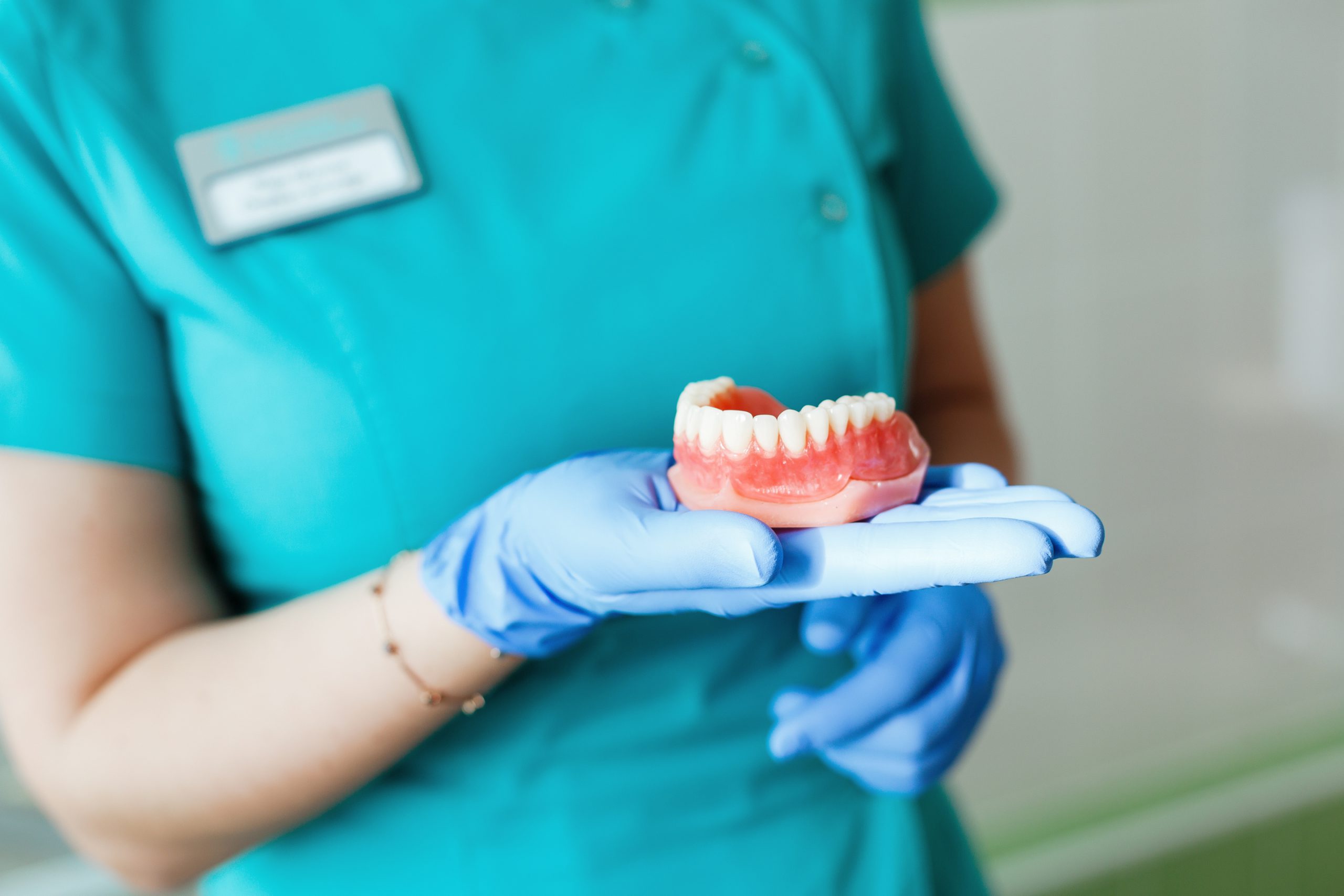
Partial vs. Full Dentures: Which Feel Better?
Smile: Do Full Dentures and Partial Dentures Feel Different?
Yes, full and partial dentures may feel different in your mouth. With full dentures, all of your natural teeth are removed and you’ll become adjusted to a whole mouth full of teeth at once. With partial dentures, you’ll still have some of your own natural teeth and dentures that fill in the gaps. This might feel odd at first. That’s completely normal, and you will adjust sooner than you may think.
If you already have partial dentures and you are transitioning into full dentures, expect an adjustment period in the beginning. For a while, the areas where you previously had the partial dentures may feel fine, but the other parts of your mouth, those with the brand-new dentures, may feel funny. That’s simply the feeling of your gums and bone adapting to the change of the teeth being gone in those areas, as the areas where you already had partial dentures have already had time to adapt.
What Can I Do to Adapt to the Feeling of Dentures Faster?
You can adapt to the feeling of wearing dentures more quickly than you might imagine. A few tips to remember while adapting to your new dentures, whether they’re full or partial, can include:
- Stay away from difficult foods. This includes sticky, chewy, and very hard foods that could damage or dislodge your dentures. Your dentist will give you a list of food recommendations when you get your new partial or full dentures.
- Practice makes perfect. Spend some time practicing your enunciation and speaking if you’re nervous about sounding funny while talking. You’ll quickly adapt to sounding completely normal when you speak.
- Wear your dentures as-recommended to adapt faster. Sometimes you might feel tempted to leave your dentures out if you won’t be in public. However, that could prevent you from adjusting to the dentures as quickly as you otherwise would. Plus, in the case of partial dentures, leaving the dentures out too much can allow your natural teeth to shift and cause serious problems with your denture fit.
- Use denture adhesive in moderation. You don’t need to spackle adhesive onto your dentures because all dentures are custom made for you. That means they’ll suction to your gums naturally. If you start to experience fit problems, for example, if your natural teeth feel fine but the dentures still feel odd after a month or more, call your dentist for guidance.
Bottom Line: Partial vs. Full Dentures Which Feel Better?
Many patients want to know the bottom line: Partial vs full dentures which feel better? The answer is pretty simple: Both can quickly become so natural feeling that you may be amazed. Some patients say that there’s a difference in how partial and full dentures feel in your mouth, but in general, you should plan for an adjustment period for both kinds of dentures.
If you’re concerned about the stability of your new dentures, you might want to ask about implant-retained dentures. With this option, you’ll have just a few dental implants, which are permanently anchored into your jaw, so they can help keep your dentures secure and stable. This might help you feel more confident and secure as you adjust.
Dentures can give you a whole new look as well as help you enjoy all the same functions of natural teeth. Looking to see which option is better for you?
Contact Artistic Touch Dentistry Today To Schedule Your Next Consultation!

